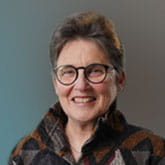In retrospect, all significant epidemics ultimately have unique patterns of demographic distribution across different age groups and genders.
The 1918 influenza epidemic impacted young adults and adults in the prime of their life more than the very young and very old. Males were impacted more significantly than females. It is thought that the worse outcomes in males might be due to the increased prevalence of tuberculosis in males and the increased vulnerability that tuberculosis conferred on patients who contracted the flu.1
In 2009, during the H1N1 influenza pandemic, it was observed that elderly individuals (more than 65 years of age) were the least ones affected, whereas pediatric deaths associated with laboratory-confirmed influenza increased mostly for school-age children and adolescents. The greatest increase in influenza-like illness presentations was noted for school-age children, adolescents and young adults in U.S., while, in New Zealand, this was noted for infants and preschool children. 2
In the current COVID-19 pandemic, initial data from the U.S. showed that 31% of cases, 45% of hospitalizations, 53% of ICU admissions, and 80% of deaths occurred among adults older than 65, with the highest percentage of severe outcomes among persons older than 85. These findings are similar to data from China, which indicated >80% of deaths occurred among persons older than 60. Very different from the picture with the 2009 N1H1, persons less than 19 appear to have milder COVID-19 illness, with almost no hospitalizations or deaths reported to date in the United States in this age group. 3 These findings rapidly created the impression that for individuals under the age of 60 the COVID-19 infection would not present a significant risk. These perceptions likely delayed instituting some of the necessary social distancing measures, as they were felt to be less important for the majority of the population, relevant only to older individuals and those with underlying medical conditions.
In the last few days, the focus has shifted to the fact that these preliminary data also demonstrate that severe illness leading to hospitalization, including ICU admission and death, can occur in adults of any age with COVID-19. To the surprise of many, as of March 16, 2020, 40% of patients hospitalized for Coronavirus in the U.S. have been younger adults. This realization has led to a more balanced message regarding the risks of COVID-19 across the entire adult population. Social distancing practices are now recognized as essential across broad segments of the population and not only as measures instated to protect the elderly and vulnerable among us.
The broad public outcry in response to recent scenes from the beaches of Florida with young revelers celebrating spring break is reassuring in that it shows that public perceptions regarding the risks posed by the spread of COVID-19 across the entire population have significantly shifted. As more epidemiological data regarding the patterns of spread of COVID-19 in the U.S. becomes available we will learn more about the demographic pattern of this pandemic. For now, erring on the side of caution and assuming that all of us are in this together is likely the safest way to proceed.
1 https://www.ncbi.nlm.nih.gov/pmc/articles/PMC2740912/
2 https://www.ncbi.nlm.nih.gov/pmc/articles/PMC3128617/
3 https://www.cdc.gov/mmwr/volumes/69/wr/mm6912e2.htm?s_cid=mm6912e2_w
Meet NextGen Ambient Assist, your new AI ally that generates a structured SOAP note in seconds from listening to the natural patient/provider conversation.
Read Now